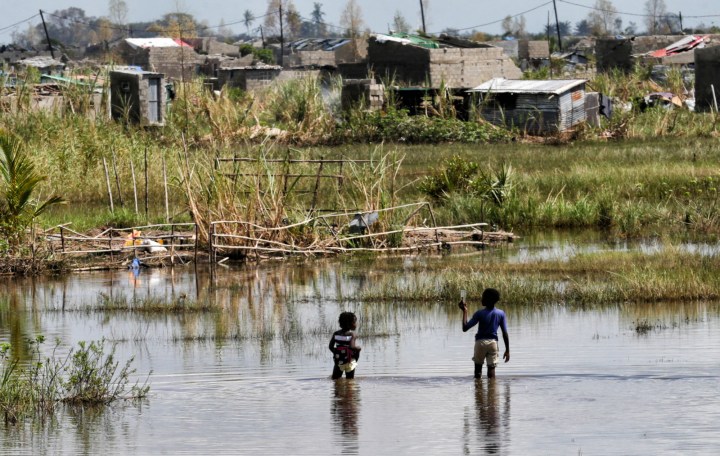OP-ED
Now comes the cholera: Mozambique’s waters of death

Two weeks after Cyclone Idai ripped through Beira, Mozambique, it continues to kill. Now comes cholera. They are some of the unluckiest, saddest, and grisliest stories of death you’ll ever have to hear: the father killed by a flying plate; the husband decapitated by corrugated iron roofing; the daughter killed by a tree hurtling across the water.
Two weeks after Cyclone Idai ripped through Beira, Mozambique, it continues to kill. Now comes cholera. An outbreak was always feared. It was declared on Wednesday. Cholera – spread by faeces in sewage-contaminated water or food – is the disease that can turn a crisis like this into a full-blown catastrophe.
The cyclone has robbed people of their homes, their livelihoods… and their clean water. As aid agencies raced to reach hundreds of thousands of people – despite roads, power and communication being destroyed – many had to survive amid stagnant waters. For others, around decomposing bodies. Combined, it was a terrifying textbook case of a breeding ground for water-borne and infectious diseases.
“There were days when we just had nothing. Just death and dirty water,” says Cecilia, 17, from Beira. Cecilia’s house was flattened by the cyclone. Everything her family owned went with the flood waters.
If left untreated, cholera can kill within hours. Which is why Unicef, with the UK’s DFID got the Beira water system up and running again; why the children’s organisation already has cholera treatment centres in place; and why water purification products have been distributed to every corner that is reachable.
Cyclone Idai struck two brutal blows: a deathly wall of wind, and then flooding across a vast area that was already experiencing poverty and drought. Flying over the affected areas shows an ocean that seemingly has no end, community after community where homes, schools, health centres, livelihoods have been washed away.
One million children now need support in Mozambique. They survived the worst disaster to hit southern Africa in two decades. Now cholera must be combated. DM
James Elder is the regional chief of communication for Unicef Eastern and Southern Africa.

















 Become an Insider
Become an Insider